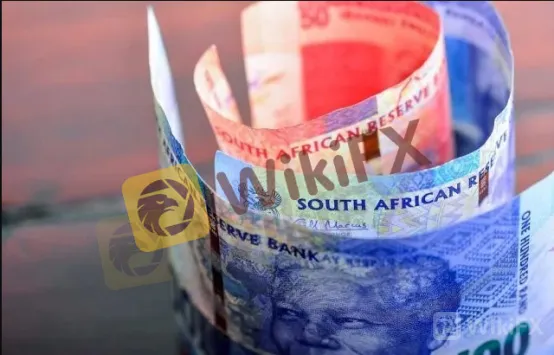简体中文
繁體中文
English
Pусский
日本語
ภาษาไทย
Tiếng Việt
Bahasa Indonesia
Español
हिन्दी
Filippiiniläinen
Français
Deutsch
Português
Türkçe
한국어
العربية
Rush to profit from the retail forex in Africa?Risky!(Part 1)
Abstract:As the largest economy in Africa, Nigeria's retail forex market is on rising, more and more individual investors are attracted to this market.
Analysis of African Foreign Exchange Market-part I: Nigeria
The growing of African Forex Market:
Nigeria is the most populous country in Africa with 173 million population in totally, accounting for 16% total population in Africa. It is also the largest economy in Africa. In 2013, Nigeria's GDP was US $509.9 billion. According to data released by Nigeria's National Bureau of Statistics on February 24, 2020, Nigeria's economy grew by 2.27% in real terms in 2019, 0.36 percentage points higher than in 2018. Driven by industries such as information, communications, agriculture, finance, insurance, and manufacturing, the Nigerian economy grew by 2.55% in the fourth quarter of 2019 compared with the same period last year.

As retail forex markets in Europe, the United States and Australia have been matured , people in emerging markets have begun to pay attention to foreign exchange trading. As the largest economy in Africa, Nigeria's retail forex market is on rising, more and more individual investors are attracted to this market. It is estimated that the average daily trading volume in Nigeria's forex market may be around 350 million to 450 million naira (US $1 million-1.2 million), and this figure is still on rising. Nigerian investors interested in forex has been growing steadily over the past decade and there are more than 300,000 retail forex traders in Nigeria , the active traders would be around 25-30 per cent. According to a report on net forex deposits by CPattern, the foreign exchange traders deposit an average of about 514$ per quarter. In Africa, it ranks second behind South Africa.
Furthermore, Nigeria has nearly 200,000 traders so far and daily forex volume is about $314 million, according to the Bank for International Settlements (BIS). In 2019, traders in South Africa and Nigeria have paid an average of about $742.04 and $514.42 per quarter to MT4 brokers, which is most popular broker in local. This is highest purchase amount in Africa, according to CPattern, a trading data firm.

By the end of 2020, The popularity rate of Internet will account for 39.2% of the 1.3 billion people in the African continent.This has led to rapidly growth of the user based on forex and other investment vehicles. It would be easier for Africans to access online trading platforms and do deposit quickly in offline. On the other hand, it is easier for African brokers to target a growing user base through online advertising platforms. In addition, professional investors in Africa are increasingly focused on global investment options-such as stocks of companies listed on the New York Stock Exchange, forex markets and commodities-which are providing them with better liquidity and volatility.
All in all, African forex Market is growing!
However, where there are interests, there will also be“predators”. In the second part, we will analyze the worrying forex environment in Africa,
such as:
1: How should the regulatory mechanism be carried out under the huge financial and forex market?
2: The origin of illegal brokers?
3: The future trend of the forex market in Africa
4: WikiFx APP will teach you how to identify genuine and fake traders.
Disclaimer:
The views in this article only represent the author's personal views, and do not constitute investment advice on this platform. This platform does not guarantee the accuracy, completeness and timeliness of the information in the article, and will not be liable for any loss caused by the use of or reliance on the information in the article.
WikiFX Broker
Latest News
Japan to Take Action to Stabilize the Yen
Ringgit Remains Flat Amid Holidays, US Debt Concerns Loom
Taurex: Is it Safe to Invest?
WikiEXPO Global Expert Interview: Loretta Joseph——Unlock the forefront of digital finance
Vietnamese Police Bust $1.2 Million Crypto Fraud Case
XTB Receives Licenses to Operate in Indonesia & UAE
SEBI Bans Big "Finfluencers for Misleading Investors"
WikiFX New Year Bash: Chance to Win 70 USDT
Malaysia’s Securities Commission Enforces Ban on Bybit & Its CEO
Will Gold Shine Brighter in 2025?
Currency Calculator






